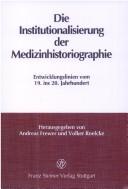| Listing 1 - 10 of 25 | << page >> |
Sort by
|
Book
ISBN: 3737000301 3847100300 Year: 2012 Publisher: V&R unipress : Göttingen,
Abstract | Keywords | Export | Availability | Bookmark
 Loading...
Loading...Choose an application
- Reference Manager
- EndNote
- RefWorks (Direct export to RefWorks)
Regarding the prevention and investigation of incidents of torture, one of the most urgent problems has long been the absence of internationally acknowledged guidelines for their effective and thorough documentation. Initiated by the Turkish Medical Association, the Human Rights Foundation of Turkey and the Physicians for Human Rights USA, and with the joint effort of more than 75 experts from different fields, representing 40 organizations in 15 countries, those guidelines were developed and finally published in 1999 as the "Istanbul Protocol: Manual on the Effective Investigation and Documentation of Torture and Other Cruel, Inhuman or Degrading Treatment or Punishment." Within one year the Protocol was adopted by the UN General Assembly and the UN Human Rights Committee and in 2004 it was published as part of the UN's Professional Training Series. The second volume of the book series "Medicine and Human Rights" offers for the first time a complete German translation of this important document. It contains background information regarding legal and ethical issues as well as general considerations for conducting an investigation. Two comprehensive chapters and four annexes deal with the physical and psychological consequences of torture and their diagnosis. The volume is completed by an account comprising the history of the protocol and its current usage in the European context.
Dignity. --- Medical ethics. --- Human rights. --- Basic rights --- Civil rights (International law) --- Human rights --- Rights, Human --- Rights of man --- Human security --- Transitional justice --- Truth commissions --- Biomedical ethics --- Clinical ethics --- Ethics, Medical --- Health care ethics --- Medical care --- Medicine --- Bioethics --- Professional ethics --- Nursing ethics --- Social medicine --- Human dignity --- Values --- Law and legislation --- Moral and ethical aspects
Dissertation
Year: 1998 Publisher: [S.l.] [s.n.]
Abstract | Keywords | Export | Availability | Bookmark
 Loading...
Loading...Choose an application
- Reference Manager
- EndNote
- RefWorks (Direct export to RefWorks)
Book
ISBN: 383763471X 3839434718 Year: 2016 Publisher: Bielefeld transcript Verlag
Abstract | Keywords | Export | Availability | Bookmark
 Loading...
Loading...Choose an application
- Reference Manager
- EndNote
- RefWorks (Direct export to RefWorks)
Wie können Menschenrechte im Gesundheitswesen respektiert und umgesetzt werden? Dieser Band, der aus einer Forschungsgruppe der »Emerging Fields Initiative« hervorgegangen ist und Ergebnisse einer langjährigen Kooperation von Expert_innen vorstellt, legt theoretische Grundlagen für das Recht auf Gesundheit und zeigt praktische Anwendungen in nationalen wie auch globalen Zusammenhängen. In Kooperation von Autor_innen aus Philosophie, Medizin, Ethik, Recht und Politikwissenschaft sowie unter Beachtung internationaler Perspektiven - u.a. aus der Weltgesundheitsorganisation (WHO) - werden zentrale Fragen an der Schnittstelle von Menschenrechten und Medizinethik erörtert. Mit Beiträgen von Heiner Bielefeldt (Erlangen-Nürnberg/Genf), Lotta Eriksson (Stockholm), Andreas Frewer (Erlangen-Nürnberg), Christina Heinicke (Erlangen-Nürnberg), Michael Krennerich (Erlangen-Nürnberg), Amrei Müller (Oslo), Andreas Reis (Genf), Abha Saxena (Genf), Martina Schmidhuber (Erlangen-Nürnberg/Salzburg) und Caroline Welsh (Berlin) sowie einem Anhang mit der deutschen Übersetzung des General Comment 14 »Das Recht auf ein Höchstmaß an Gesundheit« des UN-Ausschusses für wirtschaftliche, soziale und kulturelle Menschenrechte. »Die interdisziplinäre Sicht auf die Gesundheit als Menschenrecht erweist sich als überaus produktiv. Sie zeigt eindringlich, dass erheblicher Forschungs-, aber eben auch Handlungsbedarf besteht. Der vorliegende Band schafft dafür eine solide Grundlage.« Wolfgang Berg, www.socialnet.de, 09.06.2016 Besprochen in: Deutsches Ärzteblatt, 113/25 (2016), Stephan Heinrich Nolte Dr. med. Mabuse, 222 (2016) BZgA-InfoDienst Migration, 3 (2016) Dr. med. Mabuse, 223 (2016) Journal für Gesundheitsförderung, 3 (2016) Curare, 40/3 (2017), Katharina Greifeld Dr. med. Mabuse, 238 (2019)
Medical ethics. --- Human rights. --- Basic rights --- Civil rights (International law) --- Human rights --- Rights, Human --- Rights of man --- Human security --- Transitional justice --- Truth commissions --- Biomedical ethics --- Clinical ethics --- Ethics, Medical --- Health care ethics --- Medical care --- Medicine --- Bioethics --- Professional ethics --- Nursing ethics --- Social medicine --- Law and legislation --- Moral and ethical aspects --- Ethics. --- Global Health. --- Healthcare. --- Human. --- Justice. --- Law. --- Medical Ethics. --- Medicine. --- Philosophy. --- Right To Health. --- Sociology of Medicine. --- Sociology. --- Menschenrechte; Recht Auf Gesundheit; Ethik; Gerechtigkeit; Gesundheitswesen; Globale Gesundheit; Soziologie; Mensch; Recht; Medizin; Medizinsoziologie; Medizinethik; Philosophie; Human Rights; Right To Health; Ethics; Justice; Healthcare; Global Health; Sociology; Human; Law; Medicine; Sociology of Medicine; Medical Ethics; Philosophy
Book
ISBN: 3515088628 9783515088626 Year: 2007 Publisher: Stuttgart : Franz Steiner Verlag,
Abstract | Keywords | Export | Availability | Bookmark
 Loading...
Loading...Choose an application
- Reference Manager
- EndNote
- RefWorks (Direct export to RefWorks)
Despite having been revised and criticised over the years, the Declaration of Helsinki remains one of the most important and internationally known ethics codes worldwide. Yet we know relatively little about its historical origins or about the prolonged revision process which accompanied this "living document". The chapters presented in this volume look at the history and theory of human experimentation, assess the role of the Helsinki Declaration in an international context, and illustrate specific issues about the history and practice of research ethics through a number of case studies in the United States, Asia and Europe.
Bioethical Issues. --- Ethics, Medical --- Helsinki Declaration --- Human Experimentation --- Human experimentation in medicine --- Medical ethics. --- Research Subjects. --- history. --- ethics. --- Moral and ethical aspects. --- World Medical Association. --- Medical ethics --- Expérimentation humaine en médecine --- Éthique médicale --- Moral and ethical aspects --- Aspect moral. --- Expérimentation humaine en médecine --- Éthique médicale
Book
ISBN: 9783515102742 Year: 2012 Publisher: Stuttgart Franz Steiner Verlag
Abstract | Keywords | Export | Availability | Bookmark
 Loading...
Loading...Choose an application
- Reference Manager
- EndNote
- RefWorks (Direct export to RefWorks)
(Produktform)Electronic book text --- Wissenschaftsgeschichte --- Krankheitsbegriff --- Medizinethik --- Implikationen --- Gesundheit --- (VLB-WN)9690

ISBN: 3515078495 Year: 2001 Publisher: Stuttgart Steiner
Abstract | Keywords | Export | Availability | Bookmark
 Loading...
Loading...Choose an application
- Reference Manager
- EndNote
- RefWorks (Direct export to RefWorks)

Abstract | Keywords | Export | Availability | Bookmark
 Loading...
Loading...Choose an application
- Reference Manager
- EndNote
- RefWorks (Direct export to RefWorks)
017.2 <43> SUDHOFF, KARL
---
093:5/6
---
094:5/6
---
#BIBC:ruil

ISBN: 3593368501 Year: 2001 Publisher: Frankfurt Campus
Abstract | Keywords | Export | Availability | Bookmark
 Loading...
Loading...Choose an application
- Reference Manager
- EndNote
- RefWorks (Direct export to RefWorks)
Medical ethics --- Medicine --- History
Book
ISBN: 9780190224172 0190224177 9780190224196 0190224193 9780190093440 Year: 2020 Publisher: New York, N.Y. Oxford University Press
Abstract | Keywords | Export | Availability | Bookmark
 Loading...
Loading...Choose an application
- Reference Manager
- EndNote
- RefWorks (Direct export to RefWorks)
"At the heart of research with human beings is the moral notion that the experimental subject is altruistic, and is primarily concerned for the welfare of others. Beneath the surface, however, lies a very different ethical picture. Individuals participating in potentially life-saving research sometimes take on considerable risks to their own well-being. Efforts to safeguard human participants in clinical trials have intensified ever since the first version of the World Medical Association's Declaration of Helsinki (1964) and are now codified in many national and international laws and regulations. However, a comprehensive understanding of how this cornerstone document originated, changed, and functions today does not yet exist in the sphere of human research. Ethical Research brings together the work of leading experts from the fields of bioethics, health and medical law, the medical humanities, biomedicine, the medical sciences, philosophy, and history. Together, they focus on the centrality of the Declaration of Helsinki to the protection of human subjects involved in experimentation in an increasingly complex industry and in the government-funded global research environment. The volume's historical and contemporary perspectives on human research address a series of fundamental questions: Is our current human protection regime adequately equipped to deal with new ethical challenges resulting from advances in high-tech biomedical science? How important has the Declaration been in non-Western regions, for example in Eastern Europe, Africa, China, and South America? Why has the bureaucratization of regulation led to calls to pay greater attention to professional responsibility? Ethical Research offers insight into the way in which philosophy, politics, economics, law, science, culture, and society have shaped, and continue to shape, the ideas and practices of human research"
Book
ISBN: 3662668726 3662668718 Year: 2023 Publisher: Berlin, Heidelberg : Springer Berlin Heidelberg : Imprint: Springer,
Abstract | Keywords | Export | Availability | Bookmark
 Loading...
Loading...Choose an application
- Reference Manager
- EndNote
- RefWorks (Direct export to RefWorks)
Pandemics such as Covid-19, Ebola, SARS, and influenza, as well as the necessary measures for their research, prevention, and treatment, raise a number of ethical issues that confront science, the medical profession, and health policy. This overview volume, written by renowned experts from medicine, the humanities, and the social sciences, addresses the central ethical issues in pandemics. Focusing on the disciplines of philosophy, public health, bioethics, and law, the book discusses issues of resource allocation, triage, and research, as well as restrictions on freedom, rights and duties of health professionals, and ethical aspects of digital medicine in crises. The volume is intended to serve as a handbook and to provide physicians as well as nurses, politicians and interested laypersons with valuable advice on how to deal with the difficult moral problems of epidemics and pandemics. With expert contributions by Steffen Augsberg (Giessen), Klaus Bergdolt (Cologne), Nikola Biller-Andorno (Zurich), Walter Bruchhausen (Bonn), Christiane Druml (Vienna), Hans-Jörg Ehni (Tuebingen), Alice Faust (Berlin), Sophia Forster (Erlangen-Nuremberg), Andreas Frewer (Erlangen-Nuremberg), Sara Gerke (Boston/Cambridge), Patrik Hummel (Eindhoven), Elena Jirovsky-Platter (Vienna), Katharina Kieslich (Vienna), Otmar Kloiber (Ferney-Voltaire), Ulrich H. J. Körtner (Vienna), Eva Kuhn (Bonn), Georg Marckmann (Munich), Timo Minssen (Copenhagen), Tim Nguyen (Geneva), Barbara Prainsack (Vienna), Andreas Reis (Geneva), Anita Rieder (Vienna), Stephan Rixen (Bayreuth), Lana Saksone (Berlin), Martina Schmidhuber (Graz), Harald Schmidt (Philadelphia), Annabel Seebohm (Brussels), Daniel Strech (Berlin), Sebastian Wäscher (Zurich), Hans-Werner Wahl (Heidelberg), Stefanie Weigold (Berlin), and Lena Woydack (Berlin). The translation was done with the help of artificial intelligence. A subsequent human revision was done primarily in terms of content. .
Medical laws and legislation. --- Medical Ethics. --- Epidemiology. --- Medical Law. --- Diseases --- Public health --- Biomedical ethics --- Clinical ethics --- Ethics, Medical --- Health care ethics --- Medical care --- Medicine --- Bioethics --- Professional ethics --- Nursing ethics --- Social medicine --- Law, Medical --- Medical personnel --- Medical registration and examination --- Physicians --- Surgeons --- Medical policy --- Medical jurisprudence --- Moral and ethical aspects --- Legal status, laws, etc. --- Law and legislation
| Listing 1 - 10 of 25 | << page >> |
Sort by
|

 Search
Search Feedback
Feedback About UniCat
About UniCat  Help
Help News
News